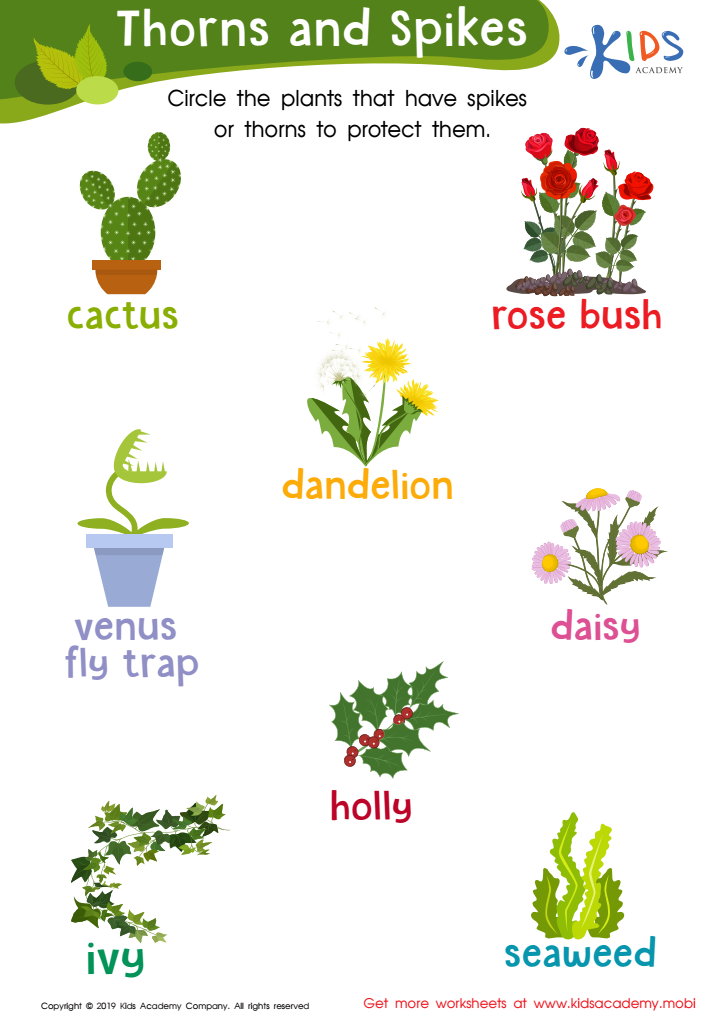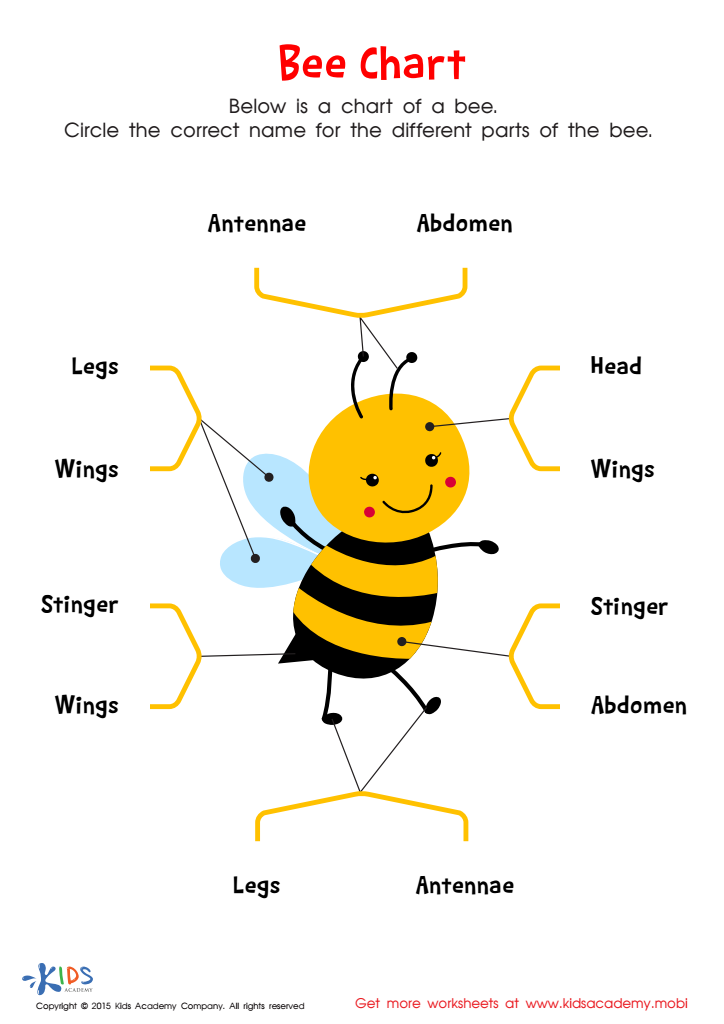Science knowledge Normal Science Worksheets for Ages 6-8
3 filtered results
-
From - To
Explore the fascinating world of science with our "Science Knowledge Normal Science Worksheets for Ages 6-8" at Kids Academy. Designed to captivate young minds, these worksheets cover essential topics including plants, animals, weather, and more. Each activity inspires curiosity and enhances understanding through engaging exercises and experiments. Perfect for both classroom and home use, our worksheets align with educational standards and help develop critical thinking, observation, and problem-solving skills. Dive into the wonders of science today and nurture a lifelong love of learning in your child with Kids Academy's fun and educational science resources.


Thorns and Spikes Worksheet


Space: Assessment 2 Worksheet
Parents and teachers should care about introducing Normal Science concepts to children aged 6-8 because it lays the foundation for critical thinking and curiosity about the world around them. Normal Science refers to the day-to-day research that forms the basis of scientific understanding. By engaging kids at this formative stage, parents and educators help children develop essential skills such as observation, inquiry, and evidence-based reasoning.
Introducing science early nurtures a natural curiosity. At this age, kids are particularly inquisitive, often asking "why" about everything they see, hear, and experience. Science provides structured ways to find answers, encouraging a habit of critical thinking. Hands-on activities and simple experiments make learning fun and memorable, fostering a lifelong passion for questioning and discovery.
Furthermore, early exposure to science can lead to a better understanding of how the world works, affecting everyday decision-making and future learning. It also fosters problem-solving skills and adaptability, which are crucial as they grow older. In our increasingly technology-driven world, understanding basic scientific principles becomes vital for participating fully in society and various career paths.
Overall, prioritizing science education for young children not only cultivates a love for knowledge but also empowers them to become thoughtful, informed, and innovative individuals.

 Assign to My Students
Assign to My Students
















